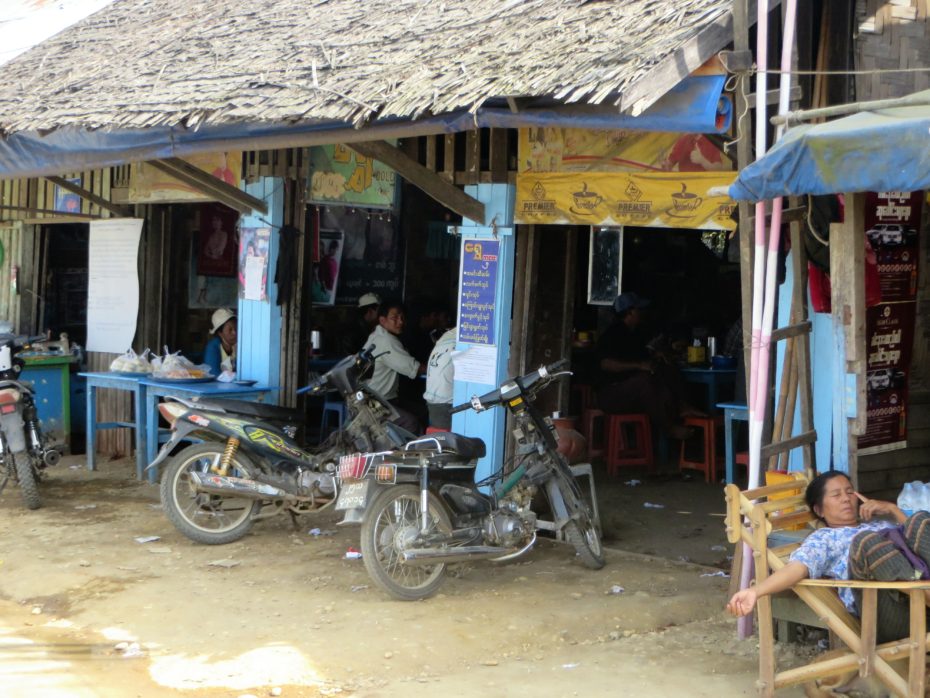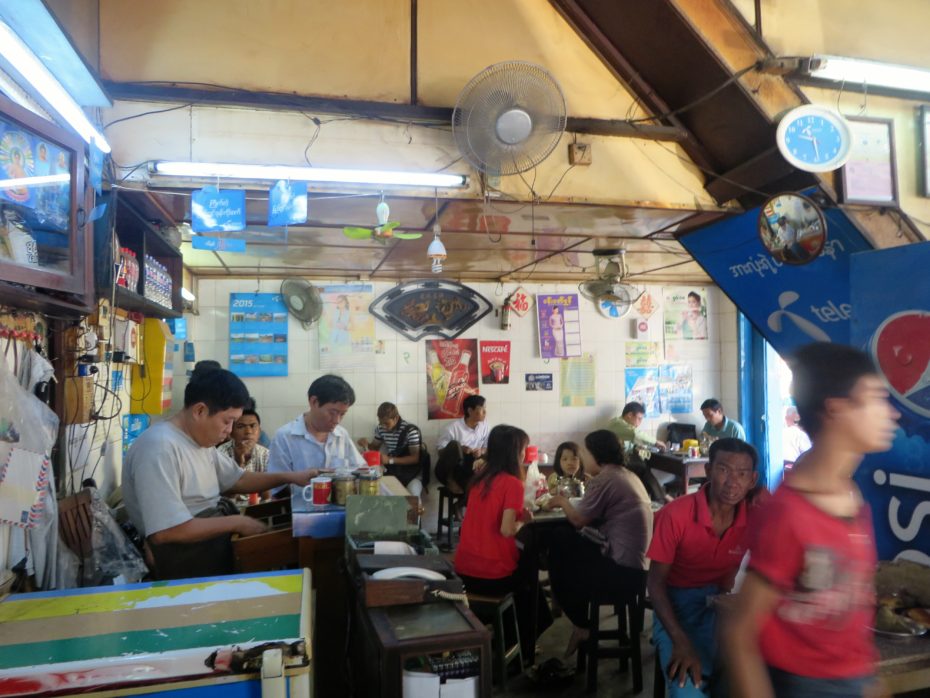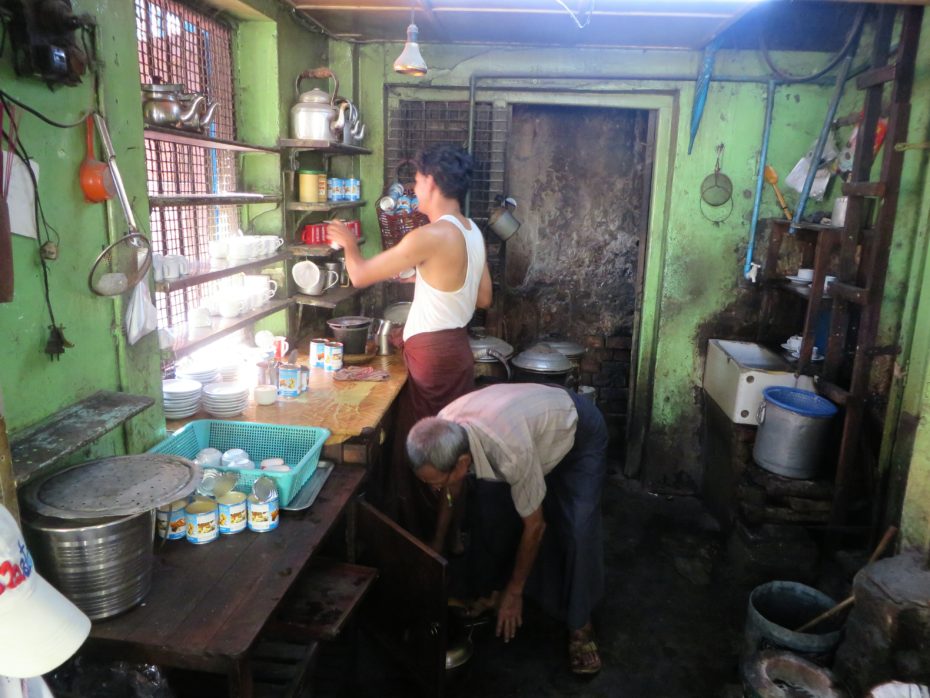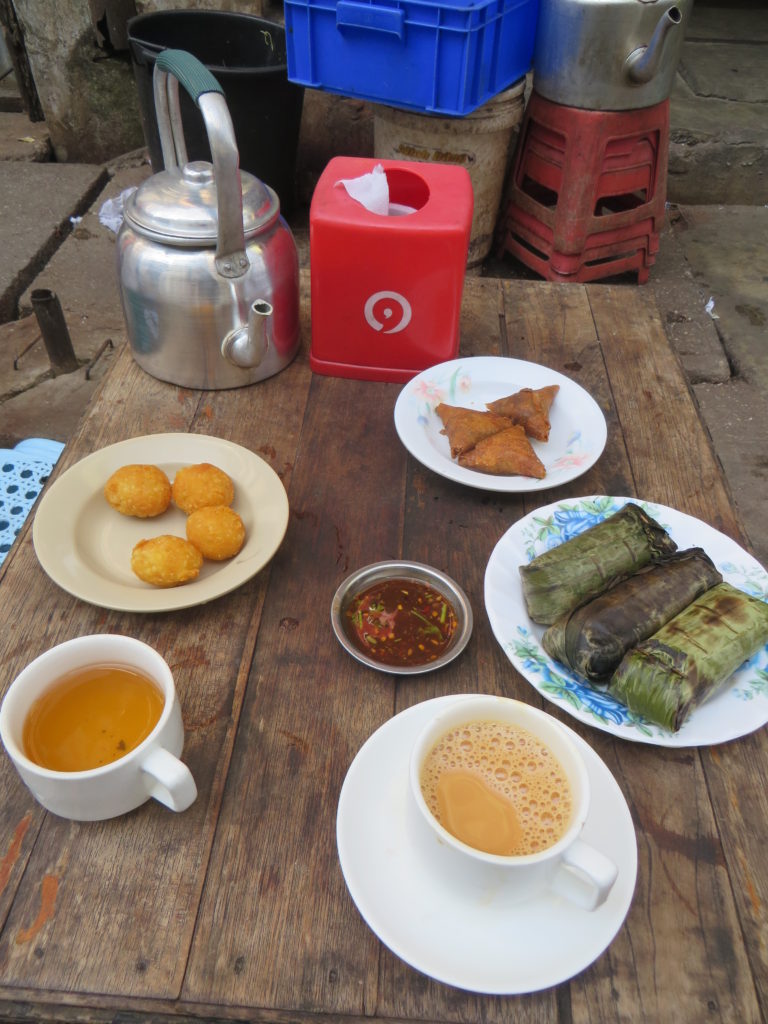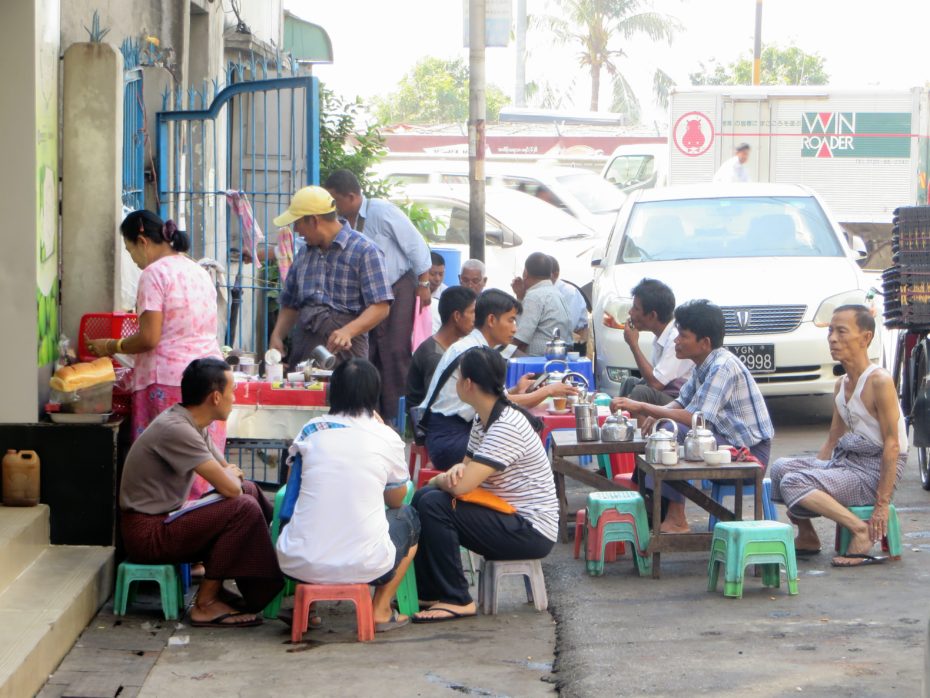If the pub can be said to be at the heart of British social life, the same can be said of the tea house in Myanmar. Both may have a male focus but the tea house has none of the drunken bravado of its counterpart, as Buddhism tends to frown upon a lack of sobriety. Sweet, milky tea is dispensed to the masses from the early morning, usually to some time in the afternoon. It is where tales are told, deals are done and hours idled away.
A favourite of the trip was an unnamed example in Paungbyin, as it captured many of the elements vital to the older, more traditional tea houses. I offer no photos of its interior, because to use a camera discretely, as one of the rare foreign visitors, would have been as awkward as the best man getting his dick out at a wedding. I hope my humble words will suffice.
Fundamental to the genre are sedimentary, historical layers of dubious wiring and electrical fittings, that any British electrician would have condemned at a brief glance from a 100m away. Paungbyin tea house did not disappoint as it still retained features that Thomas Eddison would have been familiar with, although he would have been rather perplexed by the mobile phones charging on a dusty shelf.
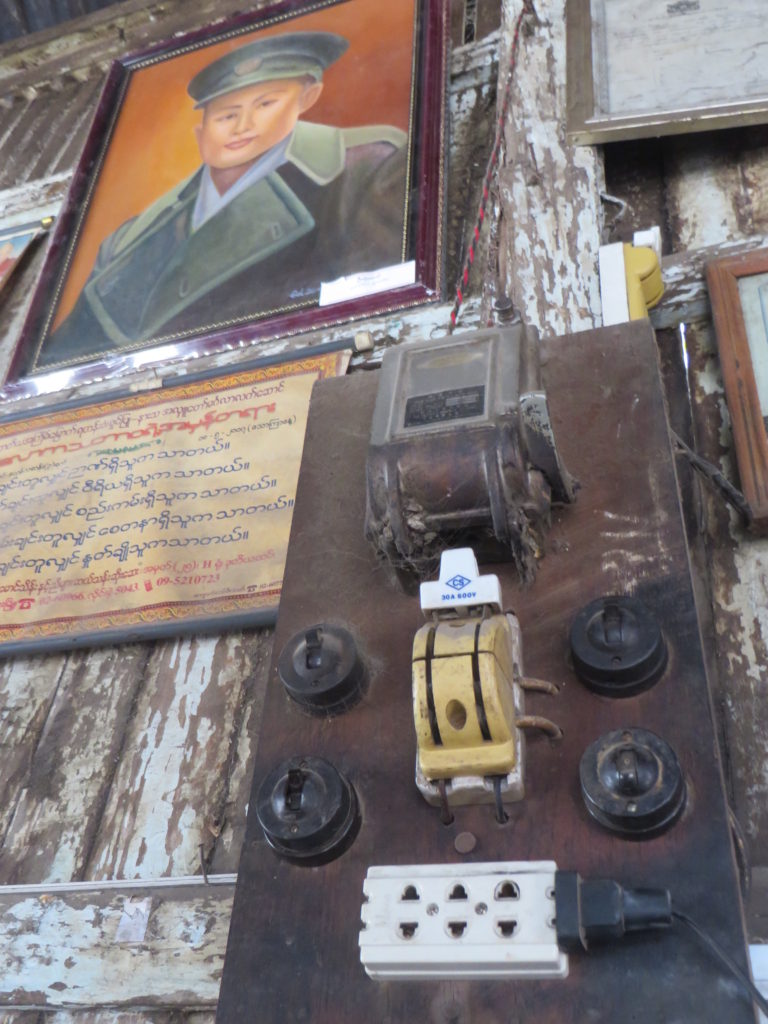
Electrical history lesson watched over by General Aung San, father of Suu Kyi and independent Burma, with his more recent role as patron saint of amateur electricians
As to the building itself, the average farmer would have thought twice about parking his sheep in its wobbly wooden frame with greying bamboo matted walls and the cobwebs hanging like a jungle canopy blackened by ancient detritus. Opposing walls supported a popularity contest between posters of democracy icon, Aung San Suu Kyi, on one side and teen pop stars on the other. The elegance of both struggling to shine through years of accumulated dust and grime, fused with tea kettle steam and cheap cigarette smoke. The only feature the tea house lacked was the communal cigarette lighter hanging from a tatty piece of string in the middle of the room. Along with betel nut it is tea and tobacco that stand in for the social glue of alcohol favoured in Britain, with the advantage of a lower tendency for a fight breaking out after a “did you spill my pint” moment.
A faded rainbow of cheap plastic chairs sat on an earthen floor around a hotchpotch of wooden tables, whose thin coatings of paint have been softened by spilled tea and eroded by the scrape of cups and elbows. The lower halves of all the legs were stained with a grubby high tide mark, as if the adjacent river had flooded annually and the flow of tea had resumed once the waters had receded with no one tempted to exert themselves with a quick pass of a damp cloth. Cleaning in general in Myanmar rarely extends beyond anything more than a brief wipe and a few strokes of a broom, leaving most surfaces deeply engrained with a hardened glaze of prehistoric goo impervious to all but industrial power tools.
A poorly tuned tv beamed garish, clouded images of 1970’s films and the angular squawks of Burmese cabaret to men contemplating the bounteous oil of deep-fried samosas and sugary heart attack pastries. When two young women entered, their crisp, trendy clothes illuminated the subdued colours of the men’s soft shirts and longhis (a loose wrap of material covering the legs instead of trousers). Myanmar is one of those rarer places in Asia where it is the men who have retained some of the traditional costume rather than the women.
In a country yet to be invaded by Starbucks, even the more modern examples in the cities remain fairly true to the original spirit of this vital institution, with a devil-may-care attitude to hygiene and a garage sale ethic to furniture selection. Long may it continue to shrug off the global trends in the sale of beverages. Lets all raise our cups of tea in salute to that.




